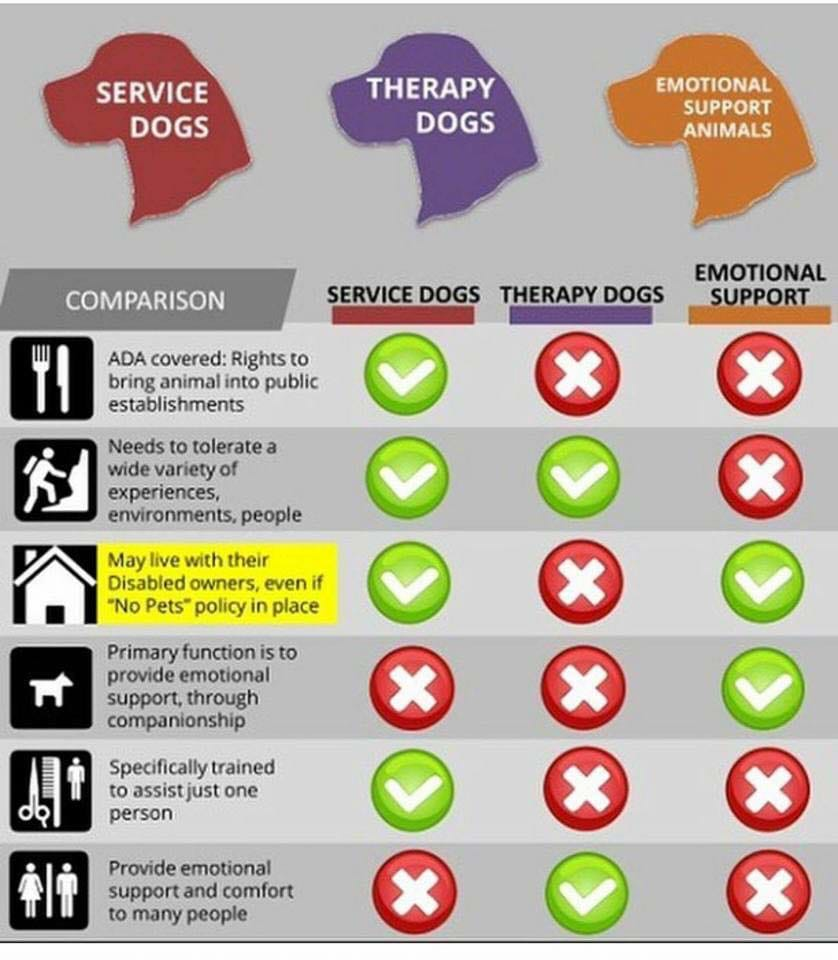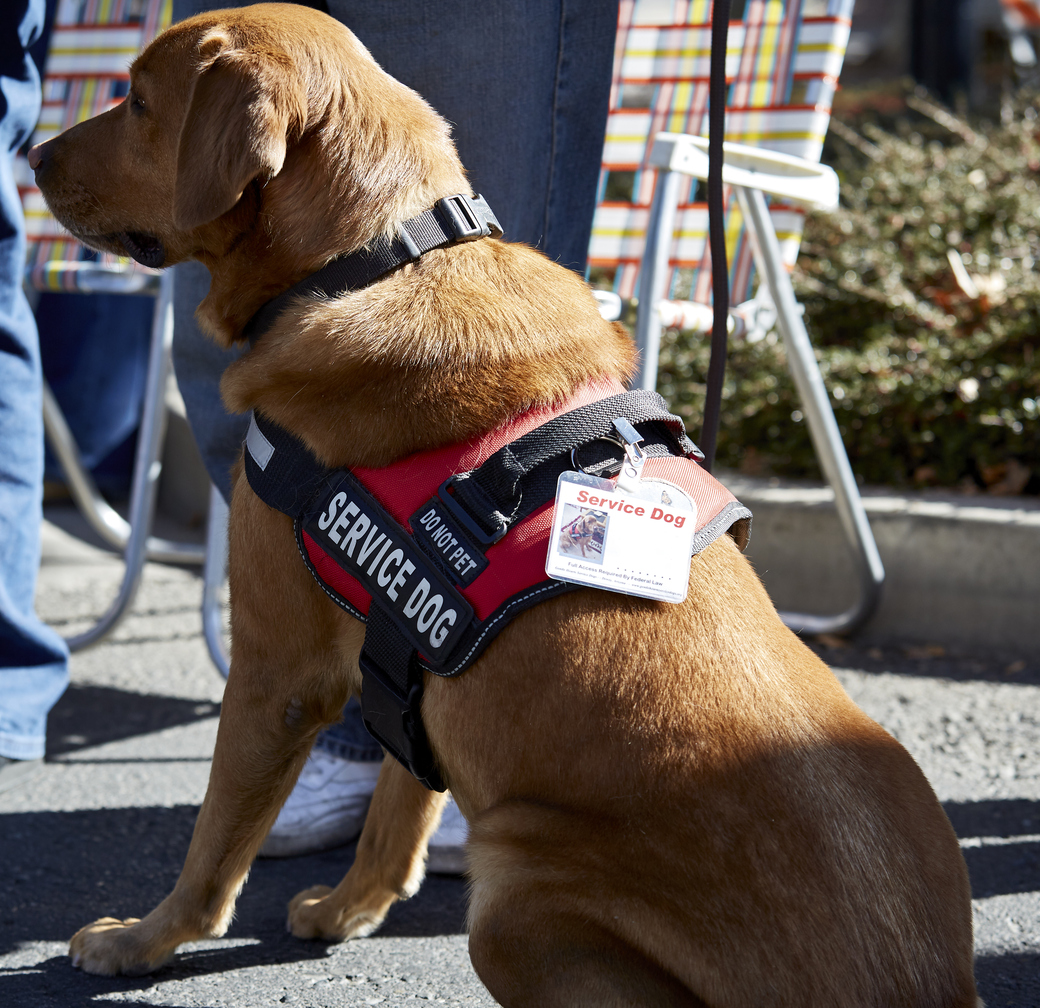Service Animals Vs. Emotional Support Animals Ferreting Out The Truth

The only physical aspect an Emotional Support Animal might provide in contrast to a Service Animal is that they may provide physical affection on command or respond to playful activities.
Service animals vs. emotional support animals ferreting out the truth. Service animals need to be extremely highly trained and perform specific tasks for their owners to help them live with their disability. Due to the recent surge in people making use of service animals and emotional support animals ESAs there is some confusion as to what the difference between the two is. Emotional Support Animals Service Animals and Pets on Campus C.
If the dog has been trained to sense that an anxiety attack is about to happen and take a specific action to help avoid the attack or lessen. 10 Animals Who Have Figured Out The Public Transit System. Law an emotional support animal is not a pet and is generally not restricted by species.
Any animals even dogs and miniature horses that provide people with emotional support and comfort or aid in therapy are not considered service animals. Under Title III of the federal Americans with Disabilities Act ADA and virtually all state laws a service animal is an animal that has been trained to perform work or tasks for the benefit of a person with a disability. If the dog is trained to sense the onset of an anxiety attack and lessens the impact of it it qualifies as a service animal.
Certain COVID-19 IQ facilities may be unable to accommodate certain species. In the four years since that number increased. Within the past several years however mentally.
Some states however automatically follow guidelines set by federal agencies. One reason why some people may be hesitant to recognize ferrets as beneficial animals in this aspect is because theyre confusing ESAs with service animals. How to tell one from the other and the rules that apply.
Well the Americans with Disabilities Act ADA makes a distinction between psychiatric service animals and emotional support animals. They are trained to follow basic commands but are not trained for a specific task. By 2015 the National Service Animal Registry one of several sites that sell ESA certificates had registered more than 65000 assistance animals.


















